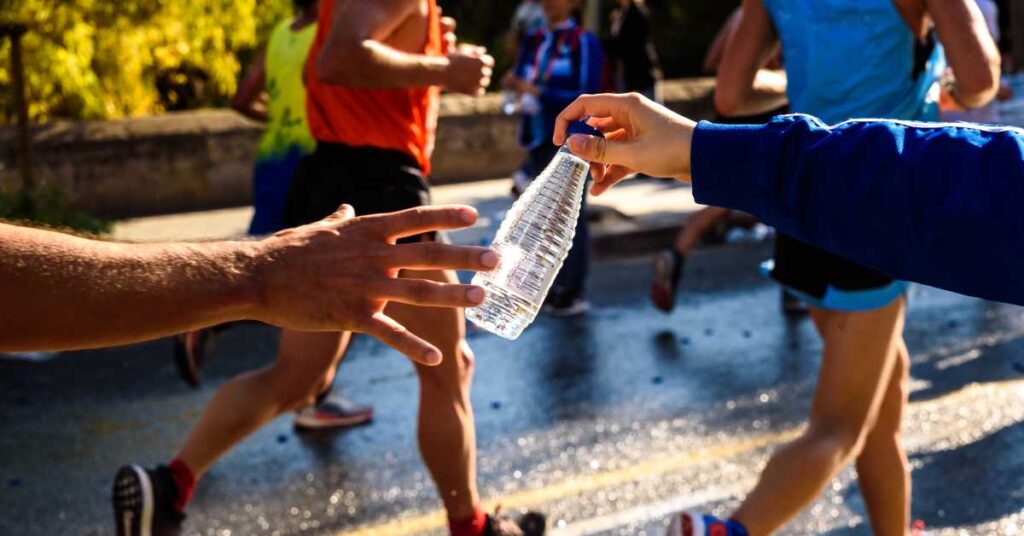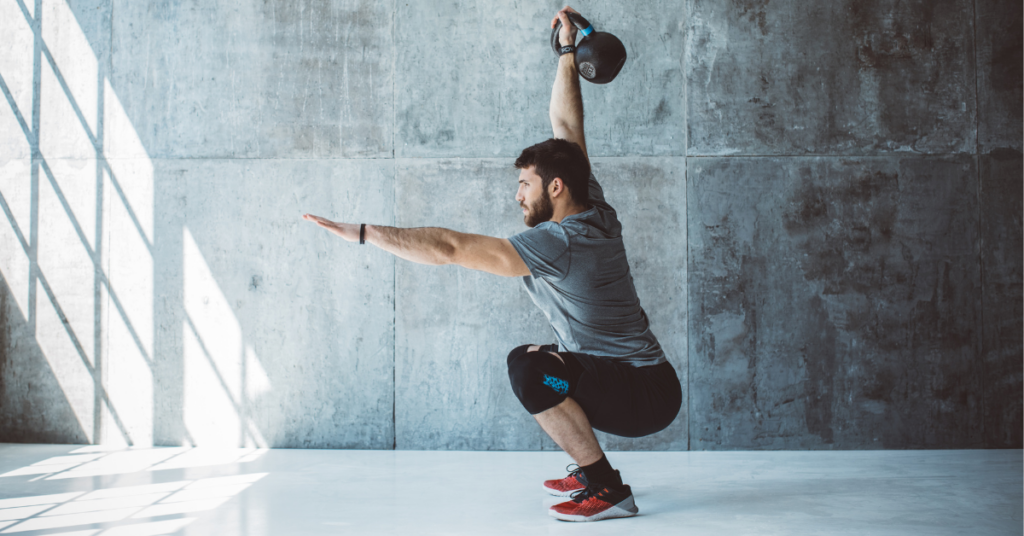Introduction
Athletic performance is not solely determined by physical abilities; the mental aspect plays a crucial role as well. To maximize performance, athletes need to develop and employ effective mental strategies.
Goal Setting and Visualization
Setting clear and specific goals is the foundation of mental strategies:
Setting Clear and Specific Goals: Define specific goals that are measurable, attainable, relevant, and time-bound (SMART goals). These goals provide direction and focus for your training and competition.
Using Visualization Techniques for Performance Enhancement: Visualize yourself performing at your best, vividly imagining the sights, sounds, and sensations of success. This technique helps build confidence, enhances motor skills, and mentally prepares you for optimal performance.
Positive Self-Talk and Affirmations
Harnessing the power of positive self-talk can significantly impact performance:
Harnessing the Power of Positive Self-Talk: Replace negative self-talk with positive and empowering statements. Use phrases such as “I can do it,” “I am prepared,” and “I am strong.” Positive self-talk boosts confidence and helps maintain a positive mindset during challenging moments.
Using Affirmations to Boost Confidence and Focus: Create affirmations that align with your goals and values. Repeat these affirmations daily to reinforce positive beliefs, build confidence, and enhance focus.
Managing Pressure and Stress
Effective pressure and stress management contribute to optimal performance:
Techniques for Managing Pressure during Competition: Utilize techniques such as deep breathing, visualization, and positive self-talk to manage pressure during competition. Focus on the present moment, break tasks into manageable steps, and maintain a calm and composed demeanor.
Stress Reduction Strategies for Optimal Performance: Incorporate stress reduction techniques into your routine, such as mindfulness meditation, physical relaxation exercises, and engaging in activities that promote relaxation and mental well-being.
Building Mental Resilience
Developing mental resilience is crucial for overcoming setbacks and challenges:
Developing Resilience to Bounce Back from Setbacks: Embrace setbacks as learning opportunities. Develop a growth mindset and view challenges as stepping stones toward improvement. Focus on solutions, learn from mistakes, and maintain a positive attitude.
Embracing Challenges as Opportunities for Growth: Seek out challenging situations and push your comfort zone. Embracing challenges helps develop mental toughness, adaptability, and problem-solving skills.
Focus and Concentration
Maintaining focus and concentration is essential for peak performance:
Techniques to Improve Focus and Concentration during Competition: Practice mental exercises, such as selective attention and visualization, to improve concentration. Eliminate distractions, set specific cues, and develop strategies to regain focus when distractions arise.
Practicing Mindfulness for Enhanced Performance: Incorporate mindfulness techniques into your training and competition routine. Mindfulness helps cultivate present-moment awareness, reduces stress, and improves focus and decision-making.
Pre-Performance Routines and Rituals
Establishing pre-performance routines and rituals can enhance mental preparation:
Establishing Pre-Performance Routines for Mental Preparation: Develop a pre-performance routine that includes mental and physical preparation. This routine should create a sense of familiarity and readiness, reducing anxiety and optimizing performance.
Incorporating Rituals to Create a Sense of Control and Confidence: Incorporate rituals that have personal significance and create a sense of control and confidence. Rituals can include specific warm-up exercises, visualization practices, or personalized routines that help you enter a focused state of mind.
Managing Emotions and Emotional Regulation
Effective emotional management positively impacts performance:
Techniques for Managing Emotions during Competition: Develop strategies to manage intense emotions, such as anger, frustration, or anxiety, during competition. Techniques may include deep breathing, cognitive reframing, and focusing on task-relevant cues.
Developing Emotional Regulation Skills for Optimal Performance: Learn techniques to regulate emotions and maintain emotional balance. This may involve practicing relaxation techniques, seeking support from sports psychologists, or engaging in activities that promote emotional well-being.
Building Confidence and Self-Belief
Confidence and self-belief are key contributors to athletic success:
Strategies for Enhancing Confidence and Self-Belief: Set achievable goals, acknowledge and celebrate progress, focus on strengths, and seek feedback from coaches and mentors. Surround yourself with a supportive network that reinforces your confidence and belief in your abilities.
Overcoming Self-Doubt and Developing a Positive Mindset: Challenge negative self-talk, reframe failures as learning opportunities, and cultivate a positive mindset. Replace self-doubt with self-compassion and belief in your ability to improve and succeed.
Review and Reflect
Regular review and reflection contribute to continuous improvement:
Importance of Reviewing and Reflecting on Performance: Take time to review and analyze your performance. Identify strengths, areas for improvement, and patterns in your performance. Use this information to adjust your training and mental strategies.
Incorporating Feedback for Continuous Improvement: Seek feedback from coaches, teammates, and mentors. Embrace constructive criticism as an opportunity for growth and make adjustments accordingly.
Sleep and Recovery
Quality sleep and proper recovery support mental and physical performance:
The Role of Sleep in Mental and Physical Performance: Prioritize sufficient and quality sleep to support mental and physical recovery. Sleep plays a vital role in cognitive functioning, emotional regulation, and overall well-being.
Incorporating Proper Recovery Practices for Optimal Mental Well-Being: Implement recovery practices such as active rest, relaxation techniques, and engaging in activities unrelated to sports. Taking breaks and allowing your mind to recharge contributes to enhanced mental well-being and performance.
FAQs
Q1: How long does it take to see improvements in performance using these mental strategies?
The time it takes to see improvements can vary for each individual. Consistent practice and application of these mental strategies are key. Some athletes may notice improvements relatively quickly, while for others, it may take more time. It is important to remain patient and committed to the process, as long-term benefits can be significant.
Q2: Are these mental strategies only beneficial for competitive athletes, or can recreational athletes also benefit from them?
These mental strategies are beneficial for athletes of all levels, including both competitive and recreational athletes. They can help improve focus, confidence, resilience, and overall performance in any athletic endeavor. The strategies can be tailored to fit individual goals and aspirations, regardless of the level of competition.
Q3: Can I practice these mental strategies on my own, or should I seek professional help?
Many athletes can benefit from practicing these mental strategies on their own. However, for athletes who are experiencing significant performance-related challenges or are looking to maximize their mental performance, seeking guidance from a sports psychologist or mental performance coach can be beneficial. These professionals can provide personalized support and help athletes develop customized strategies.
Q4: How often should I incorporate these mental strategies into my training routine?
Consistency is key when it comes to incorporating these mental strategies into your training routine. Ideally, they should be practiced regularly, integrated into your daily or weekly training regimen. It is important to make them a part of your routine, just like physical training, to maximize their effectiveness and long-term benefits.
Q5: Can these mental strategies help with overcoming performance anxiety?
Yes, these mental strategies can be helpful in managing and overcoming performance anxiety. Techniques such as deep breathing, visualization, positive self-talk, and managing stress can assist in reducing anxiety and promoting a more relaxed and focused state of mind. However, if performance anxiety persists and significantly impacts your athletic performance, it may be beneficial to seek professional help from a sports psychologist or mental health professional for targeted support and strategies.







